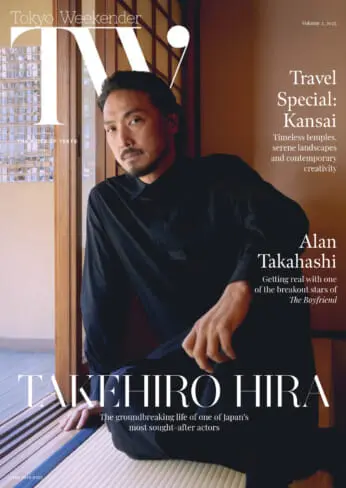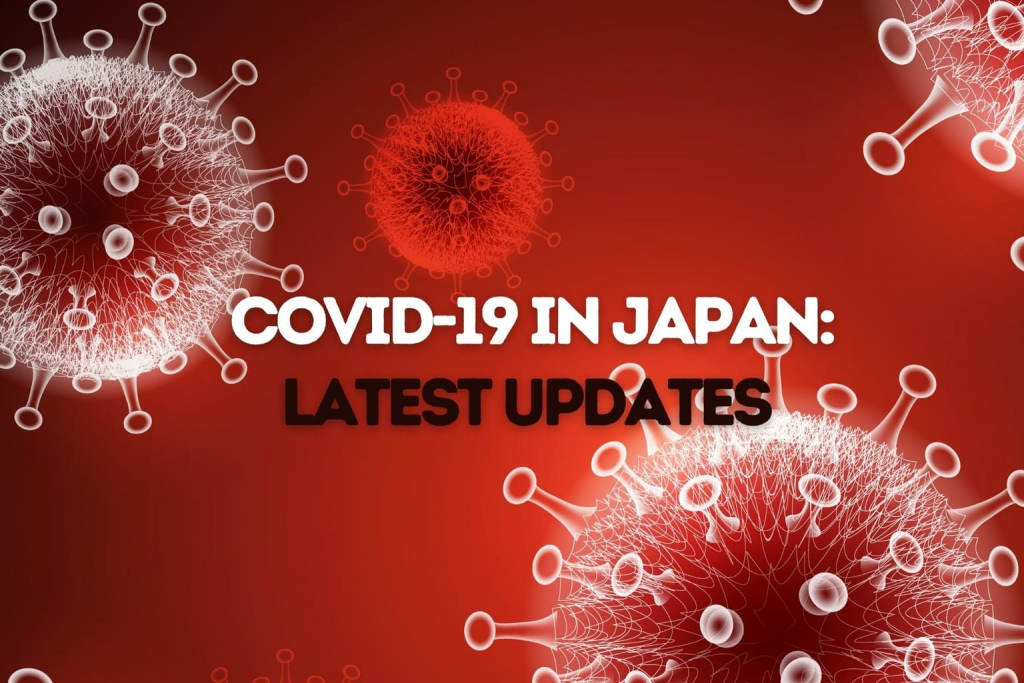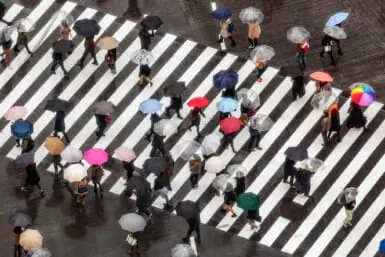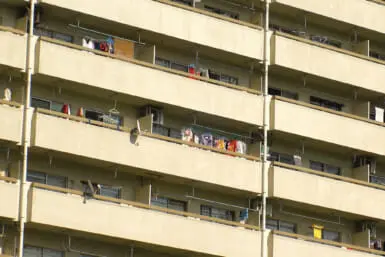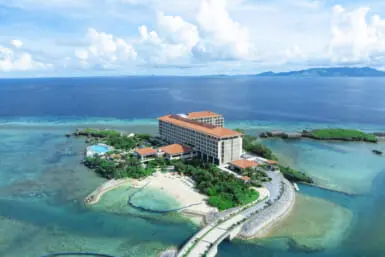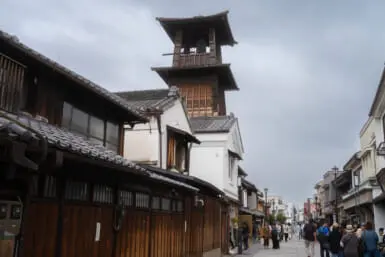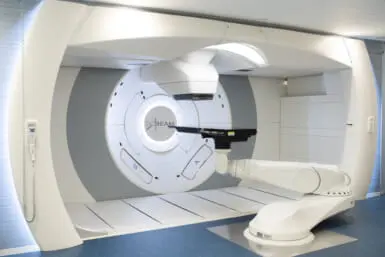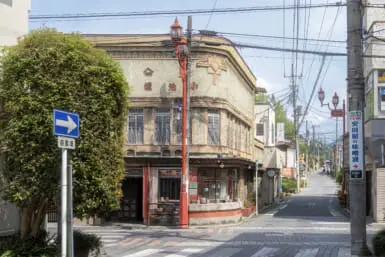As of May 31, 2021, the novel coronavirus, also known as Covid-19, has infected 171,018,900 people and caused 3,556,583 deaths in 219 countries and regions. While statistics show that approximately 80% of infected patients have mild or no symptoms, the nature of the virus is still largely unknown, which is why it is crucial to stay informed and strive to prevent yourself from contracting the virus and/or unconsciously spreading it to other people.
On this page, Tokyo Weekender provides essential information for foreign residents, including daily updates and a summary of Japanese news and governmental policies. If you have any specific Covid-19-related questions, leave us a comment and we will address them in our next update.
- Latest Updates
- Past updates
- What financial support can I apply for?
- COVID-19: Japan Statistics
- COVID-19: Basic Information, Where to call, How to protect yourself
- Symptoms
- What to do if you think you may have been infected?
- What to do to protect yourself and others from contracting COVID-19
- COVID-19 multilingual hotlines in Japan
Latest Updates
(As of May 31, 2021)
- On May 28 the Japanese government announced it will extend the state of emergency to June 20 in the prefectures of Tokyo, Osaka, Kyoto, Hyogo, Aichi, Fukuoka, Hokkaido and Hiroshima.
- On May 14 the Japanese government announced it will expand the state of emergency to the prefectures of Hokkaido, Okayama and Hiroshima.
- The Japanese government announced it will be extending the state of emergency until May 31 for the prefectures of Tokyo, Osaka, Kyoto and Hyogo. From May 12, the state of emergency will extend to Aichi and Fukuoka prefectures, also until May 31. During this time, the government is asking all restaurants and bars to stop serving alcohol. Working from home is highly encouraged. Quasi-emergency measures will continue in the prefectures of Kanagawa, Saitama, Chiba, Ehime, Okinawa, Hokkaido, Gifu and Mie.
- The Japanese government announced the third state of emergency, effective from April 26 through May 11, 2021, in the following prefectures: Tokyo, Osaka, Kyoto and Hyogo. During this time, the government asks that non-essential facilities including museums, restaurants and department stores close their doors. Grocery stores and drugstores will remain open.
- Starting April 1, the Tokyo Multilingual Consultation Navi (TMC Navi) will expand its services to take over the functions of Tokyo Coronavirus Support Center for Foreign Residents (TOCOS) and will continue closely partnering with various specialized offices to assist foreign nationals with consultations concerning Covid-19. See this article for more services for foreign residents of Japan.
- The Japanese Government lifts the state of emergency for Tokyo, Chiba, Kanagawa and Saitama prefectures, effective March 22.
- The Japanese government lifts the state of emergency for Osaka, Gifu, Aichi, Hyogo, Kyoto and Fukuoka, effective March 1.
- On February 24, Prime Minister Suga announced Covid-19 vaccinations for the elderly will begin on April 12.
- On February 13, the Japanese Health Ministry approved Pfizer’s vaccine for distribution, set to start later this week.
- On February 2, the Japanese government officially announced it is extending the state of emergency in 10 prefectures (Tokyo, Chiba, Kanagawa, Saitama, Osaka, Gifu, Aichi, Hyogo, Kyoto and Fukuoka) until March 7.
- Tokyo reported 633 new Covid-19 cases on Sunday, January 31, down 136 from Saturday. Nationwide, the number of reported cases was 2,673.
- Japan will receive an additional supply of coronavirus vaccine doses for 12 million people from Pfizer Inc, the government said Wednesday. Pfizer’s vaccine is likely to gain approval for inoculation on February 15.
- On January 13, Prime Minister Suga declared a state of emergency in seven additional prefectures to the original four (Tokyo, Chiba, Kanagawa and Saitama): Tochigi, Osaka, Gifu, Aichi, Hyogo, Kyoto and Fukuoka. Japan’s second state of emergency is now effective in 11 prefectures and will last until February 7.
- Japan declared a second state of emergency on January 7, coming into effect on Friday, January 8. Here is what happens under the second state of emergency.
COVID-19: Japan Statistics
- Confirmed cases: 744,956
- In critical condition: 1,347
- Deaths: 12,980
- Discharged from hospitals: 671,772
- Highest number of confirmed cases in Japan per prefecture (top 5): Tokyo: 160,695, Osaka: 99,621, Kanagawa: 61,376, Aichi: 47,148, Saitama: 43,707.
*Including returnees from China on chartered planes and passengers on the Diamond Princess cruise who were confirmed with COVID-19 positive after their return home. The numbers exclude cases confirmed onboard Diamond Princess. Data as of May 31, 2021. Source: NHK
Most important Covid-19 updates from Japan (April 2020~)
- On Saturday, Dec 26, the Japanese government announced that Japan will ban entry from all countries to prevent the spread of the more contagious U.K. variation of the coronavirus. The ban took effect Monday, Dec 28, and will continue through the end of January.
- On Dec 17, the Tokyo Metropolitan Government raised its alert level to the highest of four stages, saying that the strain on its medical system from the Covid-19 pandemic was severe. Tokyo has about 3,000 beds allocated for Covid-19 patients, but as of Dec 14, 2,049 were occupied.
- On December 14, the Japanese government announced that the “Go To Travel” campaign will be halted nationwide from December 28 to January 11. Furthermore, Tokyo and Nagoya, two cities where infections have been rapidly spreading in the past couple of weeks, will be removed from the travel campaign, effective December 18. Inbound travel to Tokyo through the campaign will be halted and outbound travel discouraged until December 27.
- The government added Tokyo to its Go To Travel tourism support campaign from October 1. As of present (Oct 21) nearly one in four people in Japan have used the campaign to travel domestically.
- The Japanese government has lifted coronavirus-related re-entry restrictions on foreign residents from Sept 1. Re-entry will be permitted for visa holders, including permanent residents and exchange students, on condition that they undergo coronavirus testing and quarantine for 14 days, the same policy that applies to Japanese citizens re-entering the country. Read more details here.
- The government announced that 98.6 percent of households in Japan have received the ¥100,000 cash handouts by the end of August.
- Japan’s economy in the April-June period shrank an annualized 27.8 percent, the sharpest contraction on record.
- On Aug 9, anti-mask supporters gathered for a “Cluster Protest” outside Shibuya Station. Participants, among whom mothers with babies and toddlers, were all unmasked, holding up placards that read “Masks, Social Distancing, The ‘Three Cs’, Self-restraint Not Necessary.” The gathering was organized by politician Masayuki Hiratsuka, who ran an unsuccessful campaign in the July Tokyo Gubernatorial Election. His campaign slogan was “Coronavirus is just a cold.”
- Japan’s government has begun accepting applications from foreign residents seeking re-entry to Japan who have valid visa statuses and had left Japan before the entry ban was imposed. To re-enter, they will be required to provide proof that they have taken a PCR test within 72 hours before their flight. They must also obtain documents confirming their re-entry permission from their local Japanese Embassy, take a PCR test and self-isolation upon arrival, and use the government-sponsored Covid-19 tracking app.
- The governor of Osaka Prefecture, Hirofumi Yoshimura, held a press conference on Tuesday, August 4, announcing that studies have revealed that gargle medicine can fight coronavirus. He based the discovery on limited trial on a group of 41 patients with mild symptoms. The data showed that gargling with diluted povidone-iodine four times a day reduced the number of those testing positive to 9.5 percent after four days.
- Following Yoshimura’s press conference, gargle medicines sold out in most drugstores across the country. On the popular fleamarket app Merucari, gargle medicines were sold for nearly ¥8,000 whereas they typically cost a few hundred yen. Yoshimura held a second press conference the day after to clarify that he didn’t meant that gargle medicine can “cure or prevent” coronavirus.
- Concerns over further spread of the virus are growing as the central government launched its controversial “Go To Travel” subsidy campaign on July 22, with Tokyo excluded due to recent spikes in new infections. The campaign partially covers domestic travel expenses in a bid to encouraging people to travel and spend locally.
- The health ministry will conduct its first nationwide coronavirus-linked mental health survey, possibly as early as next month. The purpose of the survey is to look into how the coronavirus pandemic has affected mental health and is expected to cover a sample number of 10,000 people.
- On July 15, the Tokyo Metropolitan Government lifted the capital’s coronavirus alert level to the fourth — and highest — of a four-level coronavirus alert system. At a press conference, Gov Yuriko Koike said, “We are in a situation where we should issue warnings to citizens and businesses.”
- The first two coronavirus infections in Iwate, the only prefecture in Japan that hadn’t confirmed any Covid-19 cases since the beginning of the pandemic, were confirmed on Wednesday, July 29.
- The Japanese government has released a free smartphone coronavirus-tracking app (for IOS devices, for Android devices) that alerts users when they may have been in close proximity to someone infected with the coronavirus. According to the government, the app will collect contact data when users come within a certain distance of each other. When users who have tested positive for the coronavirus register their information, other users who had come within a meter of that person for at least 15 minutes, will be notified. The app, which was initially supposed to be released in early May, will not record data that could identify individuals.
- The head of the WHO called Japan’s efforts in tackling the spread of the new coronavirus a “success.” He also said, however, that it’s important to continue the practice of social distancing and other basic precautionary measures.
- Inbound travelers to Japan for the month of April have decreased by 99.9% in comparison to last year, according to data released by the Japan Tourism Agency.
- The government has announced plans to provide up to ¥1 million in subsidies to farmers who have suffered financial damages due to the coronavirus.
- The government announced plans to provide ¥100,000 to some 400,000 university students in Japan whose income from part-time jobs had been affected due to the virus epidemic.
- Shobushi, a 28-year-old sumo wrestler has died after contracting coronavirus and suffering multiple organ failure.
- Restaurant chain Royal Holdings announced that it will be closing 70 of its stores, including family restaurant Royal Host and fast tempura chain Tenya, by the end of 2020 as a result of declining profit caused by the coronavirus outbreak.
- A total of 142 domestic companies have filed for bankruptcy as a result of financial damage caused by the coronavirus outbreak since February. The majority of those companies are in the hotel, restaurants, or fashion business.
- Japan’s government has received the worst public rating for their response to the coronavirus pandemic, according to a global survey. The public approval rate for then-Prime Minister Shinzo Abe’s Cabinet fell to its lowest in about two years, reflecting dissatisfaction with the government’s response to the coronavirus pandemic.
- Many universities in Japan are implementing or are considering measures to financially help their students amid the coronavirus outbreak. Among them are Dokkyo University, which is set to provide ¥100,000 to its approximately 8,600 students, Hiroshima University has begun to provide ¥30,000 to students and Waseda University will offer ¥100,000 to students struggling to pay living expenses. Many other university have allocated a budget to provide ¥10,000 to ¥50,000 to each student.
- The government will provide ¥100,000 to all residents in Japan, including foreigners, as financial support for damages caused by the coronavirus outbreak. While everyone is eligible to receive the amount, people will still have to apply online to receive it. Read details about how to apply in the section above.
- Coronavirus-related cases of discrimination and prejudice are on the rise throughout Japan. Among those cases are such of children of medical and delivery company staff who are being excluded from day care because of fear of contracting the virus.
- Police said that 15 people whose deaths were treated as accidents or incidents from mid-March to April 22 had tested positive for COVID-19 posthumously. Among the deceased were people who had collapsed on the street.
- The Tokyo Municipal Government will provide financial compensation of up to ¥500,000 to single-operating businesses that have suffered financial loss due to the corona outbreak.
- The government will increase Japan’s monthly child allowance by ¥10,000 per child to support families affected by the coronavirus outbreak.
- The funeral of beloved Japanese comedian Ken Shimura, who passed away from COVID-19 on March 29, was held on April 11 and 12th. Only close relatives attended, his agency said on Monday.
Covid-19 Financial Support for Foreign Residents
For detailed information on what types of financial support you can apply for, please see this article.
COVID-19: Basic Information, Where to call, How to protect yourself
Symptoms
The most common symptoms associated with COVID-19 are fever, cough, fatigue, phlegm, shortness of breath, sore throats and headaches. In some cases, people infected with the virus may feel pains, nasal congestion, runny nose, sore throat or diarrhea.
What to do if you think you may have been infected?
If you’ve had the following symptoms for four days continuously (two days for pregnant women, senior residents and people with other health conditions):
- Common cold symptoms
- Fever of above 37.5℃ or higher
- Extreme fatigue
- Difficulty breathing
➤ Call 03-5320-4592. For support in English, Chinese, Korean, Spanish and Thai, call the Tokyo Health Care Information Center (Himawari) at 03-5285-8181 (Hours: 9am–8pm, daily).
If you:
- Been in direct contact with a person infected with COVID-19 and have a fever or respiratory symptoms
- Traveled to a country that has reported COVID-19 cases or been in contact with a person who has, and have a fever of 37.5 or higher and respiratory problems
➤ Call the Novel Coronavirus Hotline at 0120-5656-53 (9am–9pm) (Free dial but consultation is offered only in Japanese.)
The Japan National Tourism Organization (JNTO) has a multilingual coronavirus hotline in English, Chinese and Korean which is available 24 hours a day. The number is 050-3816-2787.
For other inquiries, including anxiety related to COVID-19, call the Tokyo Novel Coronavirus Call Center (Support in English, Chinese, Korean and Japanese) at 0570-550-571.
In all cases, after consultation over the phone, a doctor will determine whether you need to undergo a PCR test. If the doctor requests that you undergo a PCR test, wear a mask and refrain from using public transport on your way to the hospital. Those who test positive are admitted to a hospital with a specialist infectious disease ward. Those who test negative are advised to rest at home and go to a general hospital if needed.
What to do to protect yourself and others from contracting COVID-19
- Wash your hands well with antibacterial agents and soap
- Avoid touching your face
- Avoid crowded places
- Maintain at least 1-meter distance when talking to people
- Avoid using public transportation during rush hours
- Work from home if possible
- Wipe surfaces before using them: carts at shopping malls and supermarkets, tables at restaurants, door knobs at public places, etc. Carry a portable sterilizer.
- Wear a mask. Masks may not directly protect you from the virus, but they can limit the chance of spreading/contracting the virus.
- If you don’t have a mask, cough in your sleeve or in a handkerchief
- Avoid going out at night, to karaoke parlors, bars and any other indoor facilities with poor ventilation
Where to take the test if I’m asymptomatic or need to prove that I don’t have Covid-19?
For information on this, please see this article.
COVID-19 multilingual hotlines in Japan
- Tokyo: Tokyo Metropolitan Health and Medical Information Center Himawari (03-5285-8181) Support in: English, Chinese, Korean, Spanish and Thai
- Saitama: (048-833-3296) Support in: English, Chinese, Spanish, Portuguese, Korean, Tagalog, Thai, Vietnamese and easy Japanese
- Gunma: (027-289-8275) English, Vietnamese, Chinese, Portuguese and Spanish.
- Ishikawa: (076-222-5950) Through the Ishikawa Foundation for International Exchange. Support in: English, Chinese, Korean, Portuguese and Russian. The service is available on weekdays, from 9:15 a.m. to 5:15 p.m.
- Nagano: (0120-691-792)Through the Nagano Multilingual Call Center. Service available in English, Chinese, Korean, Thai, Indonesian, German, French, Italian, Russian, Spanish, Portuguese, Vietnamese, Nepali, Tagalog, Malay, Myanmar, Khmer
- Gifu: (058-263-8066) Support in: English, Chinese, Portuguese, Tagalog
- Aichi: Call via Aichi Now by clicking the blue button. It connects to Aichi’s Multilingual Call Center. English, Chinese, Korean, Portuguese, and Spanish for 24 hours.
- Mie: (080-3300-8077) Support in: English, Portuguese, Spanish, Tagalog, Chinese, Korean, Vietnamese, Nepalese, Indonesian and Thai
- Shiga: (077-523-5646) Support in: English, Chinese, Portuguese, Tagalog, Vietnamese, Thai, Indonesian, Nepalese, Korean, Spanish, Russian and Hindi
- Kyoto: (075-343-9666) Support in: English, Chinese, Korean, Vietnamese, Thai, Portuguese and Spanish
- Osaka: (06-6941-2297) Support in: English, Chinese, Korean, Portuguese, Spanish, Vietnamese, Tagalog, Thai, Indonesian and Nepalese
- Hyogo: (078-382-2052) Support in: English, Chinese, Spanish and Portuguese
- Wakayama: (073-435-5240) Support in: English, Chinese and Tagalog
- Hiroshima: (0120-783-806) Support in: English, Chinese, Vietnamese, Korean, Tagalog, Portuguese, Indonesian, Thai, Spanish and Nepalese
- Yamaguchi: (092-687-6639) Support in: English, Chinese, Korean, Thai, Vietnamese, Nepali, Tagalog, Indonesian, Portuguese, German, Russian, French, Spanish, Italian, Malay, Burmese and Khmer
- Fukuoka: (092-286-9595) Support in: English, Chinese, Korean, Thai, Vietnamese, Nepali, Tagalog, Indonesian, Portuguese, German, Russian, French, Spanish, Italian, Malay, Burmese and Khmer
- Kumamoto: (080-4275-4489) Support in: English, Chinese, Korean, Vietnamese, Nepalese, Indonesian, Tagalog, Thai, Portuguese, Spanish, Malay, French, Russian, German, Italian, Burmese, Khmer and Mongolian. Services available on weekdays from 8:30 a.m. to 5:15 p.m.
- Miyazaki: (0985-41-5901) Support in: English, Chinese, Korean, Thai, Vietnamese, Indonesian, Malay, Tagalog, Nepalese, Portuguese, Spanish, French, Russian, German, Italian, Myanmar, Mongolian and Khmer. Calls accepted between 10 a.m. and 7 p.m. from Tuesdays to Saturdays.
- Okinawa: (0570-050-235) Support in: English, Mandarin, Cantonese, Korean, Portuguese, Spanish, Vietnamese and Thai.
- Hokkaido: (011-200-9595) Support in: English, Chinese, Korean, Vietnamese, Tagalog, Thai, Russian, Nepalese, Indonesian and Burmese
For more in-depth articles on the coronavirus outbreak, see Tokyo Weekender’s COVID-19-dedicated section, here.
